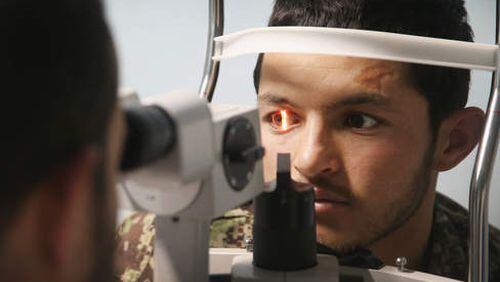A Georgia House committee on Friday narrowly defeated a bill that would have allowed optometrists to inject patients’ eyes in limited cases.
The House Health and Human Services Committee voted 13-14 on House Bill 416, the second time this year the bill failed to gain the panel's blessing.
All is not lost for the optometrists, however. A similar measure, Senate Bill 221, is still alive in the other chamber.
The bill is just the latest salvo in the larger skirmish between optometrists, who are not medical doctors, and ophthalmologists, who are.
HB 416 would have allowed optometrists who undergo at least 30 hours of specialized training to make injections in and around the eye to treat a limited number of ailments.
Ophthalmologists argued that only they have the medical expertise to make such precise injections safely and that only eight other states specifically allow optometrists to do so.
Optometrists, however, countered that their four years of post-college training, as well as the training required in the bill, makes them more than capable to perform these procedures.
About the Author







